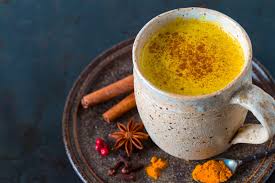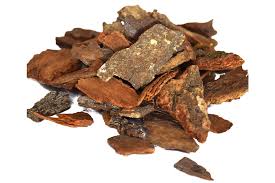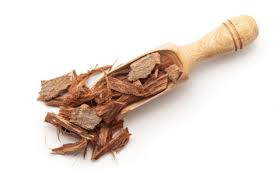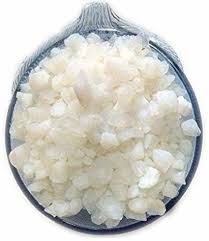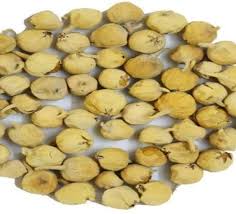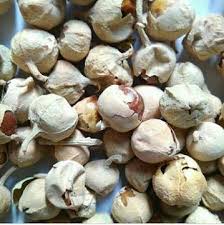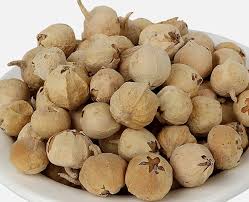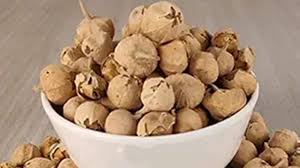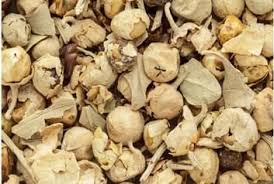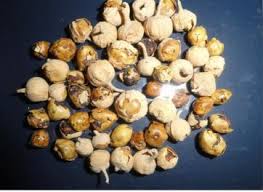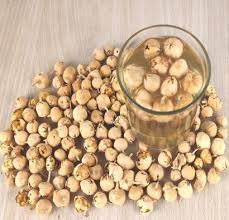
Sacred Herbs of India: Paneer Phool’s Role
India is a land of rich traditions, spiritual heritage, and ancient healing systems. From the Vedic era to folk medicine practices, certain herbs have been revered not just for their health benefits but also for their sacred significance. Among these, Paneer Phool (Withania coagulans), also known as Paneer Dodi, holds a special place.
Known for its potent medicinal properties—especially in managing blood sugar and detoxifying the liver—Paneer Phool is more than just a remedy. It is considered a sacred herb in many Indian communities. Used in rituals, spiritual ceremonies, and healing traditions, Paneer Phool is one of the few herbs that bridge the gap between Ayurveda, Unani, Siddha, and folk medicine.
In this Dirghaanshi article, we explore Paneer Phool’s revered place among the sacred herbs of India, its spiritual value, traditional rituals, and how it symbolizes the union of health, purity, and sacred energy.
🪔 Long Description
🌱 What Is Paneer Phool?
Botanical Name: Withania coagulans
Common Names: Paneer Dodi, Paneer Phool, Indian Rennet
Family: Solanaceae
Parts Used: Dried fruits/berries
This medicinal herb grows in arid and semi-arid regions of India and is commonly used in Ayurvedic and folk remedies for:
Blood sugar regulation
Liver detox
Boosting immunity
Relieving inflammation
But its importance goes far beyond health—it is honored in spiritual and ritualistic contexts, making it one of India’s sacred herbs.
🕉️ What Makes a Herb “Sacred” in Indian Culture?
Sacred herbs are not only chosen for their medicinal power but also for their spiritual purity, ritual use, and energy alignment. Paneer Phool qualifies as sacred because it:
Possesses sattvic (pure, healing) energy
Is used in spiritual cleansing and rituals
Balances the three doshas: Vata, Pitta, and Kapha
Is revered in both tribal and urban spiritual traditions
Such herbs form a vital part of India’s botanical spirituality—used to harmonize mind, body, and soul.
🙏 Paneer Phool’s Spiritual & Sacred Uses Across India
🛕 1. Ritualistic Use in Poojas
In regions like Rajasthan, Gujarat, and Madhya Pradesh, Paneer Phool is:
Added to water for ritual cleansing
Offered during Lakshmi Pooja and Navratri
Used in home havans (fire offerings) to purify the atmosphere
Kept near idols as a symbol of purity and wellness
Its mild fragrance and natural vibration make it suitable for sattvic rituals.
🌼 2. Used in Tribal Healing Rituals
Tribal communities in Chhattisgarh, Bundelkhand, and Maharashtra use Paneer Phool in:
Herbal amulets for protection from evil
Energy-balancing rituals for sick or weak individuals
Smoke cleansing for homes using dried Paneer Phool
It is tied in red cloth bundles and hung near doors or beds to ward off illness.
🌸 3. An Essential Element in Herbal Astrology
In Ayurvedic astrology, Paneer Phool is linked with:
Moon energy (calmness and emotional balance)
Mercury (intellect and metabolic clarity)
It is used during planetary poojas and to support people going through Shani Sade Sati or Rahu-Ketu dosha, as it’s believed to clear karmic blockages.
🔥 4. Smoke and Aromatherapy Cleansing
Burning Paneer Phool with camphor or frankincense is an ancient practice for:
Cleansing aura
Removing bad luck
Elevating vibration in pooja rooms
Restoring peace during conflict in homes
This dhoopan karma is still performed in many rural and temple traditions.
🌿 Paneer Phool in Ayurveda, Unani, and Siddha
🧘♀️ Ayurveda
In Ayurveda, Paneer Phool is considered:
Tikta (bitter) and Katu (pungent) in taste
A powerful herb for Prameha (diabetes)
A liver and blood purifier
Sattvic in nature, suitable for fasting and rituals
⚕️ Unani System
Unani medicine refers to Paneer Phool as a cooling agent, useful for:
Removing bile and toxins
Soothing inflammation
Treating heat-related disorders
It is also used in Unani tonics and elixirs.
🌿 Siddha Medicine
In Siddha healing, Paneer Phool is believed to:
Strengthen life force (vital energy)
Enhance Agni (digestive fire)
Restore hormonal balance
It is also included in divine herbal blends offered to temple deities in southern India.
🧬 Modern Scientific Support for Its Sacred Status
While sacred herbs are traditionally revered, modern research has also validated Paneer Phool’s benefits:
Compound Benefit
Withanolides Adaptogenic, stress relief
Alkaloids Glucose regulation, metabolism
Flavonoids Antioxidant, immune-boosting
Saponins Anti-inflammatory, liver support
Its ability to support mind-body wellness makes it spiritually significant even in contemporary times.
🔄 Symbolic Meaning of Paneer Phool
🕊️ Purity and Surrender
Paneer Phool symbolizes the cleansing of impurities, both in the body and mind. Its use in fasting rituals and sunrise water practices denotes:
Simplicity
Humility
Physical and spiritual cleansing
🌱 Resilience and Inner Strength
Growing in arid lands with minimal resources, Paneer Phool teaches resilience—the ability to thrive with little and offer abundance to others.
It is often gifted to people:
Starting new spiritual journeys
Recovering from illnesses
Undergoing major life transformations
🌀 Balance and Wholeness
Its tri-doshic balancing effect in Ayurveda aligns with the sacred Hindu trinity (Brahma, Vishnu, Mahesh), making it a symbol of completeness and divine connection.
🌄 How to Use Paneer Phool in Sacred Daily Practices
🌞 Morning Detox Ritual
Soak 7–10 berries overnight
Drink water on an empty stomach while chanting mantras or affirmations
Ideal during Ekadashi, Purnima, or Navratri fasting
🔥 Herbal Dhoop Cleansing
Burn Paneer Phool powder with:
Cow ghee
Camphor
Neem leaves
Walk through your home with it to clear stagnant energies.
🌺 Temple Offerings
Offer dried Paneer Phool with:
Tulsi leaves
Sandalwood paste
Rice grains
This makes a spiritually sattvic offering during prayers and poojas.
🧘 Spiritual Teas or Herbal Brews
Make a tea with:
Paneer Phool
Tulsi
Licorice
Cardamom
Drink during meditation or chanting to balance emotions and enhance inner peace.
♻️ Dirghaanshi’s Vision: Merging Tradition and Sustainability
At Dirghaanshi, we believe in reviving India’s sacred herbal heritage while promoting eco-conscious, sustainable usage. That’s why we:
Ethically source Paneer Phool from tribal farmers
Educate on ritualistic and spiritual uses
Ensure no chemical or synthetic processes
Blend cultural wisdom with modern health awareness
Choosing Paneer Phool from Dirghaanshi is choosing a life of holistic balance, purity, and sacred connection.
🧾 Conclusion
Paneer Phool is not just a herbal remedy—it is a symbol of India’s sacred botanical tradition. Revered for both its healing powers and spiritual properties, it plays a vital role in rituals, ceremonies, fasting, and inner cleansing practices. Its presence in Ayurveda, Unani, Siddha, and tribal traditions shows how deeply embedded it is in India’s spiritual and cultural identity.
In a world that is becoming disconnected from nature and ancient practices, Paneer Phool stands as a gentle, fragrant reminder that healing is not just about the body—it is also about the spirit. By embracing this sacred herb through sustainable and mindful use, we not only protect our health but also preserve our cultural roots.
Let Dirghaanshi be your guide in rediscovering these age-old sacred herbs—and in doing so, heal yourself and honor the wisdom of the land.



